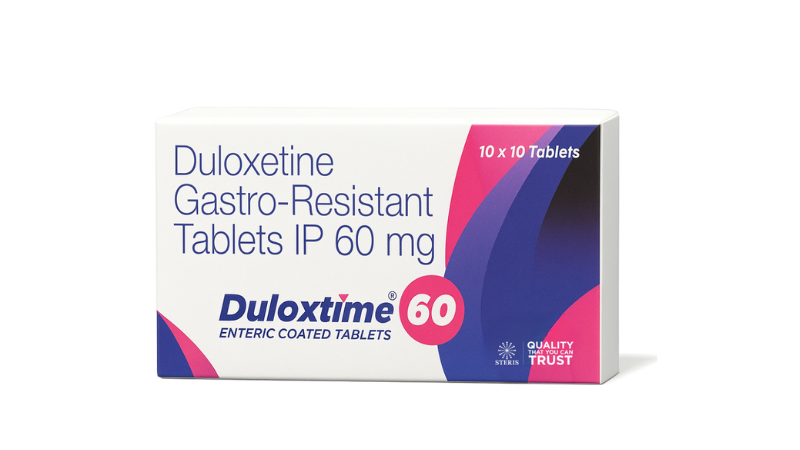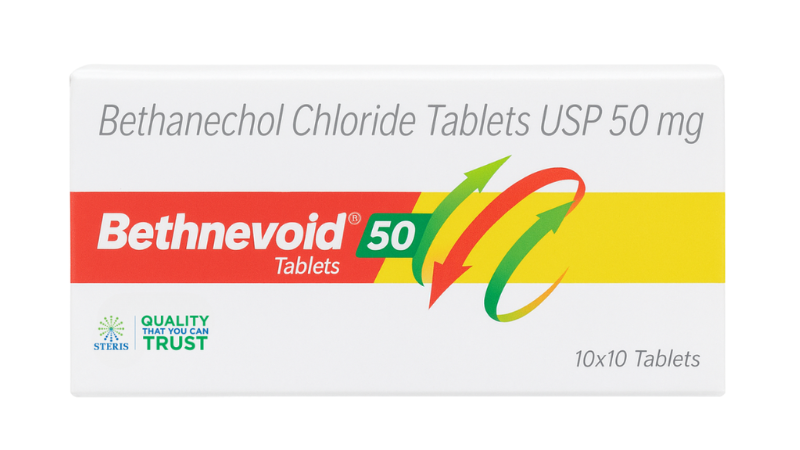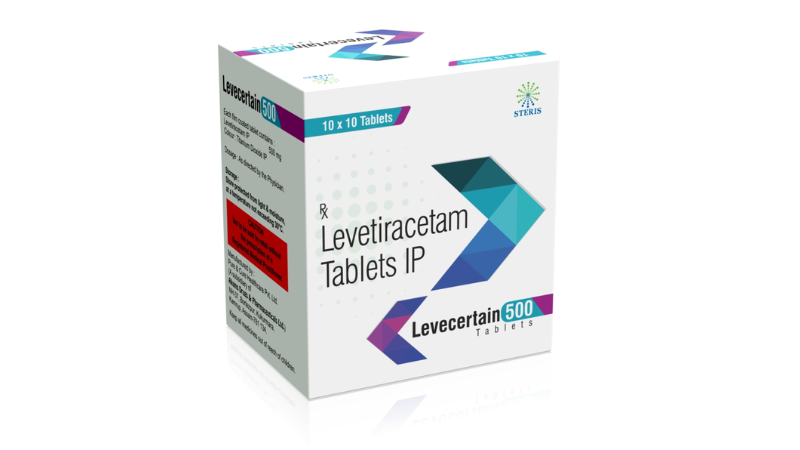Levetiracetam 500 mg Tablet: Effective Seizure Control for All Ages
Jul 31, 2025
Introduction
Levetiracetam is a widely prescribed antiepileptic drug (AED) used to manage various types of seizures in adults and children. Available as a 500 mg tablet (often marketed as LEVECERTAIN 500 or similar brand names), it is part of the newer generation of anticonvulsants, distinct from older medications due to its unique mechanism of action and generally favorable safety profile. This article provides a comprehensive overview of levetiracetam 500 mg, including its chemical composition, mechanism, uses, dosage, efficacy, safety, and practical advice for patients and healthcare providers.
Chemical Composition and Formulations
-
Levetiracetam is chemically known as (S)-α-ethyl-2-oxo-1-pyrrolidine acetamide, with a molecular formula of C₈H₁₄N₂O₂ and a molecular weight of 170.21.
-
The formulations include oral tablets (250 mg, 500 mg, 750 mg, 1000 mg), oral solutions, extended-release tablets, and injectable forms.
-
Excipients in tablet formulations may include coloring agents (e.g., tartrazine in some 500 mg tablets), and these can vary by manufacturer. Always check the package insert for full ingredient details.
Mechanism of Action
-
Levetiracetam binds to the synaptic vesicle protein 2A (SV2A), which is involved in neurotransmitter release from neurons.
-
Its unique mechanism decreases abnormal electrical activity in the brain, reducing the frequency and severity of seizures without directly affecting GABA or glutamate receptors as traditional AEDs do.
-
Research suggests it may also modulate calcium channels and have some anti-inflammatory effects, but these are not the primary modes of action.
Uses and Indications
Levetiracetam 500 mg uses are most notable in managing epilepsy and seizure-related conditions.
-
Primary use: Adjunctive therapy for partial-onset seizures (focal seizures), myoclonic seizures (in juvenile myoclonic epilepsy), and primary generalized tonic-clonic seizures (grand mal seizures).
-
Age groups: Approved for use in adults, children, and infants as young as one month.
-
Other uses: Occasionally used off-label for conditions such as neuropathic pain, mood disorders, and as a neuroprotective agent in some neurological conditions, although these uses are less common and not officially approved.
-
Limitation: Levetiracetam does not cure epilepsy but helps control seizures as long as it is taken.
Dosage and Administration
-
Initial adult dose: Typically 500 mg twice daily (1000 mg total daily dose), adjusted gradually based on response and tolerability.
-
Maintenance dose: Usually 500–1500 mg twice daily, with a maximum recommended dose of 3000 mg per day.
-
Pediatric dosing: Based on body weight; exact regimen should be determined by a healthcare provider.
-
Administration: Tablets are taken whole, with or without food. Do not crush or chew.
-
Renal impairment: Dose reduction is necessary in patients with reduced kidney function.
-
Switching formulations: Oral and intravenous forms are considered bioequivalent, allowing for easy transition between routes when needed.
Efficacy and Clinical Evidence
-
Clinical trials have shown levetiracetam to be effective in reducing seizure frequency in patients with partial-onset seizures, with statistically significant improvements compared to placebo.
-
Comparative studies indicate similar efficacy to older AEDs like carbamazepine and lamotrigine, with potentially fewer side effects in some patient groups.
-
Long-term studies support its use as both monotherapy and adjunctive therapy, with good retention rates due to favorable tolerability.
Side Effects and Safety Profile
Common Side Effects
-
Adults: Somnolence (drowsiness), asthenia (weakness), headache, dizziness, and infections.
-
Children: Fatigue, aggression, nasal congestion, decreased appetite, irritability.
Behavioral and Psychiatric Effects
-
Irritability, aggression, anxiety, depression, and mood swings can occur, especially in children and adolescents.
-
Psychotic symptoms (e.g., hallucinations, delusions) are rare but have been reported.
-
Suicidal ideation: All AEDs, including levetiracetam, carry a warning for increased risk of suicidal thoughts and behaviors.
Rare but Serious Side Effects
-
Allergic reactions: Rash, angioedema, anaphylaxis.
-
Drug reaction with eosinophilia and systemic symptoms (DRESS): A severe, multisystem allergic reaction requiring immediate discontinuation.
-
Coordination difficulties: Ataxia, abnormal gait, incoordination, especially at higher doses.
Contraindications and Precautions
-
Contraindications: Hypersensitivity to levetiracetam or any component of the formulation.
-
Precautions: Use with caution in patients with a history of psychiatric illness, renal impairment, or those at risk for suicidal behavior.
-
Pregnancy and breastfeeding: Safety is not fully established; use only if clearly needed and under close medical supervision.
Drug Interactions
-
Levetiracetam has a low potential for pharmacokinetic drug interactions due to minimal protein binding and lack of significant metabolism by liver enzymes.
-
Over 200 drugs have been reported to possibly interact with levetiracetam, but most are not clinically significant.
-
Major interactions are rare, but caution is advised with other CNS depressants, alcohol, and drugs that affect kidney function.
-
Herbal supplements that cause drowsiness or dizziness should be used cautiously.
Warnings and Regulatory Status
-
FDA-approved for several seizure types in both adults and children.
-
Black box warning: All AEDs, including levetiracetam, carry a warning for increased risk of suicidal thoughts and behaviors.
-
Withdrawal: Abrupt discontinuation may increase seizure risk; gradual tapering is recommended.
-
Driving/operating machinery: Caution advised due to potential for drowsiness and dizziness.
Patient Advice and Tips
-
Adherence: Take levetiracetam exactly as prescribed; do not stop suddenly without consulting your doctor.
-
Monitoring: Report any new or worsening mood changes, suicidal thoughts, or unusual behaviors to your healthcare provider immediately.
-
Lifestyle: Maintain regular sleep patterns, avoid alcohol, and inform all healthcare providers of your medication list.
-
Storage: Keep tablets at room temperature, away from moisture and heat.
Cost and Availability
-
Levetiracetam is widely available as a generic medication, making it relatively affordable compared to some newer AEDs.
-
Availability varies by region; in many countries, it is readily accessible in pharmacies.
-
Insurance coverage: Most health plans cover generic levetiracetam, but brand-name products may require prior authorization.
Frequently Asked Questions (FAQ)
Q: Can levetiracetam cure epilepsy?
A: No, it controls seizures but does not cure epilepsy. Treatment must be continued as prescribed.
Q: What should I do if I miss a dose?
A: Take the missed dose as soon as you remember, unless it is almost time for the next dose. Do not double the dose.
Q: Are there any dietary restrictions?
A: No specific dietary restrictions, but maintain a balanced diet and avoid excessive alcohol.
Q: Can I drive while taking levetiracetam?
A: Use caution until you know how the medication affects you, as it can cause drowsiness or dizziness.
Q: What are the signs of an allergic reaction?
A: Rash, swelling (especially of the face, lips, or tongue), difficulty breathing—seek medical help immediately.
Q: Is levetiracetam safe in pregnancy?
A: Discuss with your healthcare provider, as safety is not fully established.
Conclusion
Levetiracetam 500 mg is a first-line antiepileptic drug with a unique mechanism, broad indications, and a generally favorable safety profile. Its use spans adults and children, and it is available in multiple formulations for flexible dosing. While most patients tolerate it well, vigilance for behavioral side effects and adherence to prescribing guidelines are essential. Always consult your healthcare provider for personalized advice and regular monitoring.
Choosing a reputable pharmaceutical supplier like Steris Healthcare Pvt Ltd ensures quality and reliability, especially for chronic medications.
Recent Post

Trelagliptin 50 mg & 100 mg – Affordable Diabetes Care for Every Home

Duloxetine 60 mg Tablet Uses, Side Effects, Dosage & Composition - DULOXTIME 60

Bethanechol Chloride 50 mg Tablet Uses, Side Effects, Dosage & Composition

20 Effective Health Tips for a Better Lifestyle

How to Remove Pimples: 21 Effective Tips, Remedies & Skincare Secrets

Is Glutathione Really Effective for Face Glow? The Truth Behind the Hype

The History and Evolution of Modern Medicine

Diabetes Care Kit: 5 Must-Have Products for Everyday Health

9 Health Benefits of Vitamin E Capsules: Why They Deserve a Place in Your Wellness Routine

The Benefits of Meditation for Mental Health

